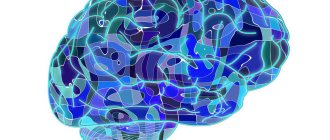Munchausen syndrome is a severe, chronic disorder in which a person deliberately feigns symptoms of illness and self-injures in order to undergo medical treatment and testing. Sometimes patients with this syndrome feign the presence of illnesses so thoroughly that they themselves begin to believe in them. These individuals typically have a long history of testing due to feigned symptoms.
The syndrome was named after Carl Friedrich Hieronymus, Baron von Munchausen, who was famous for telling stories of his fictitious exploits. The term itself was coined by Richard Escher when, in 1951, he first described patients who were faking their symptoms.
Causes of Munchausen syndrome
Experts agree that simulating an illness allows a person with Munchausen syndrome to surround himself with care and attention, which he does not receive in ordinary life. The causes of the syndrome are not fully understood. There are many assumptions, and they are all based solely on psychological reasons. One of them is that this disease develops due to lack of attention and care in childhood. Often the disorder manifests itself against the background of mental trauma received in childhood, for example, due to violence experienced or neglect of the child’s needs. Such a person is very afraid of being left without attention, sympathy and pity. However, if you simply surround him with care, this will not help, since this is a persistent mental disorder.
Patients with Munchausen syndrome often behave aggressively if they do not receive the attention they need and if others are distrustful of their symptoms.
Another supposed cause of Munchausen syndrome is, on the contrary, a consequence of overprotection. There is an observation that this syndrome most often affects people who were sick a lot in childhood and adolescence. It can also be a symptom of other personality disorders, such as anxiety disorder, narcissistic disorder, or sociopathy.
Portrait with a family background
And yet, where does such a frantic craving for treatment come from? From childhood! Future Munchausens, as a rule, grew up in single-parent families, but even with both parents they experienced a lack of love and security. Many of them suffered a serious illness at an early age, during which their relatives and doctors surrounded them with care. Gradually, such a child developed a model of illness (serious, of course!), which made it possible to recreate the desired atmosphere of attention and affection.
Despite the different motives for “travelling” to hospitals - the desire to be the center of attention, dissatisfaction with doctors and clinics, the desire to get painkillers (drugs) or shelter for the night, or even an attempt to hide from law enforcement - the image and style of behavior of Munchausen patients is almost the same .
All “barons” are characterized by egocentrism, narcissism, hypochondria, a tendency to wander, loneliness, masochism, pathological deceit, emotional immaturity and the impossibility of close contact with others. They are only interested in specialized medical literature, impressing doctors with their thorough knowledge of the simulated illness. By imitating the disease, women behave more hysterically, and men become aggressive.
Such individuals are characterized by violations of self-esteem, they have a strong need for dependence, and when seriously disappointed, they retreat into the world of fantasies and dreams. At the same time, there are no changes in formal thinking, and the intelligence quotient (IQ) is normal or above average.
They prepare seriously for hospitalization, preferring to go to emergency departments late in the evening, at night or on holidays, when, in their opinion, young, inexperienced doctors are on duty at the hospital. Well, what if the surgeon did not heed the “sincere” complaints of acute abdominal pain, “catastrophic bleeding,” “blackouts for a long time” and other “life-threatening” symptoms? Then the sufferer immediately leaves the hospital in order to be admitted to another hospital with an “acute condition” the same night.
For obvious reasons, the Munchausens try not to go to the same clinic twice. They go to various hospitals dozens, and sometimes hundreds of times! There is a known case when such a patient managed to visit 60 hospitals in just a year - a record worthy of the Guinness Book! That is why in small Western countries, in many clinics, the names of the “barons” are included in a special “list of scammers”, with which the ambulance doctor can always check.
Symptoms of Munchausen syndrome
Patients with Munchausen syndrome often behave aggressively if they do not receive the attention they need and if others are distrustful of their symptoms. Such a patient can constantly change doctors until he finds one who gives him the desired diagnosis. The patient sometimes causes himself harm or pain to make his suffering look as believable as possible. People susceptible to this disease are even able to falsify tests, for example, by adding foreign liquids and dirt to urine samples.
General information
Munchausen syndrome is a feigning artificially demonstrative mental personality disorder . It is expressed in the desire or incomprehensible unexplained motivation to exaggerately portray and simulate, sometimes even artificially induce various symptoms of diseases and signs of disability in order to be medically examined, subjected to hospitalization and treatment, up to the appointment of surgical interventions, complex procedures, etc. The main goal of patients is receiving attention and support, while they are convincing, their actions are as believable as possible and inspire confidence. The pathology can be considered as a type of hypochondria .
It is believed that people develop pathological behavior and feign illness in order to receive care, attention from loved ones, compassion, possibly sympathy and moral support, which they most often lack in their normal lives. The disease is severe and chronic, more often observed in young girls and women, in whom it is painful and multi-symptomatic.
The pathology is named after the German baron Carl Friedrich Hieronymus von Munchausen, who became famous for stories about his imaginary incredible feats, the term was proposed by R. Escher in 1951, who noticed in the patients examined the behavior and tendency to invent painful symptoms of a physical or psychological nature.
Delegated Munchausen syndrome
There is another similar disease called “delegated Munchausen syndrome” (“Munchausen’s syndrome by proxy”). In this disorder, the patient creates or invents illnesses in another person—their child or a vulnerable adult, such as a disabled person. In most cases, this is done by women in relation to their children and husbands. In this case, the child or husband themselves may exhibit symptoms imposed on them and suffer from Munchausen syndrome.
In order to provoke symptoms in another person, patients with Munchausen syndrome can be very creative.
In 1977, a case was recorded in which a woman feigned symptoms of hemiparesis (decreased muscle strength). At the same time, she artificially induced symptoms of diabetes in her daughter, and simulated seizures in her son using promethazine. This disorder is now called Pollet syndrome. It applies to cases where the mother or guardian injures or intentionally causes illness in the child. Parents who cause illness in their children usually suffer from a lack of psychological support.
In order to provoke symptoms in another person, patients with Munchausen syndrome can be very creative. The most common artificially induced symptoms are bleeding, seizures, diarrhea, vomiting, poisoning, infections, choking, fever, allergies, and sudden infant death syndrome. In children, artificially induced diseases are usually difficult to treat. In addition, numerous checks and examinations may include procedures that are harmful to the child’s health.
"You made me sick"
Not long ago, an accusation book called “You Made Me Sick” was published in the United States. This book immediately became a bestseller and was published in 18 countries around the world. Unfortunately, it has not yet been translated into Russian. In this book, a 35-year-old woman named Julia remembers her childhood, which was filled with hospitals, pills, doctors, various tests, procedures and diets. Julia's mother, Sandi Gregory, dragged her from hospital to hospital, asking the same question to doctors: “My daughter feels very bad! What with her?" Of course, after everything they did to her, the girl looked terrible. Doctors looked for the cause, constantly took blood tests, sent Julia for x-rays, examined her internal organs using catheters, but could not find anything. Without receiving a diagnosis, Sandi took the girl to another hospital and there everything started all over again. Young Julia was treated for everything from sore throat, migraines, dizziness, various allergic reactions, shortness of breath, even heart disease and heart rhythm disturbances were suspected. The girl was prescribed strict diets, various medications and unnecessary procedures, although she was in fact absolutely healthy, only the “treatment” weakened her body. Fortunately, Julia survived everything that her parents and doctors did to her without serious consequences, however, she could not forgive her mother for her poisoned childhood...
Diagnosis of Munchausen syndrome
Diagnosing Munchausen syndrome, like other factitious disorders, is quite problematic, since the patient tells lies about his condition and hides the real state of affairs. But the probable presence of the syndrome can be identified by paying attention to one or more features. This disorder can be suspected if the patient has a conflicting medical history, and examination and tests do not confirm the symptoms of which he complains. Sometimes a person can simply be caught falsifying tests or causing harm to himself. A patient suffering from Munchausen syndrome may take medications that can cause certain symptoms, and the symptoms themselves may only appear when the person is not being monitored.
If the treatment prescribed by specialists does not bring results, one may suspect that the patient simply does not follow the doctors’ orders. It is worth noting that people suffering from Munchausen syndrome usually have deep medical knowledge, use many terms in their speech and quote descriptions of diseases from textbooks and encyclopedias. They may persistently strive to get inpatient treatment, explaining that the hospital is much more convenient than at home.
Most people with Munchausen syndrome refuse to admit that they have a mental problem and do not want to solve it.
In small towns and small countries, such as Israel, Munchausen syndrome is usually detected fairly quickly because everyone knows such patients. They see the same doctors and end up in the same hospitals, so information about patients with this syndrome spreads very quickly.
Tests and diagnostics
There are difficulties in diagnosing true Munchausen syndrome, because the boundaries between factitious psychological disorder, malingering and somatization are blurred. Different conditions for the development of pathology necessitate the search for alternative names for them. To determine factitious disorder, the following criteria are used (source Wikipedia):
- identifying deliberately reproduced feigned symptoms, as well as self-harm to produce fake symptoms;
- implausibility of anamnestic data;
- lack of external motivation and benefits;
- the most important condition is laboratory confirmation of the feigning nature and the absence of the physical, organic nature of the symptoms.
The nosological system used in the USA - DSM-5 , identifies its criteria for Munchausen syndrome:
- identified falsification of psychological or physical symptoms and signs;
- in a person's understanding he is sick, weakened or injured;
- a false disease state is caused even in the absence of obvious benefit;
- the feigning state cannot be explained by other mental disorders - delusional or schizotypal .
To identify the fabrication of complaints, analyzes and an objective investigation are carried out to identify inconsistencies between the signs of the disease and the anamnesis data.
In some extremely dangerous cases, a psychiatric examination may be prescribed.
Several cases from psychiatry
Wendy Scott
There is a known case in psychiatry where a patient named Wendy Scott was hospitalized about 600 times throughout her life, and on 42 occasions she underwent various operations. The woman described and depicted all the symptoms of the disease so believably that even experienced doctors could not help but believe her.
When the patient was finally able to recover, she told the doctors about what she had experienced over all the years of her life. Thus, it was possible to establish the real cause of poor health. It turns out that little Wendy’s childhood was very difficult: she did not experience parental love and care, and experienced sexual abuse. With warmth, she could remember only one moment when her appendicitis became inflamed and she ended up in the hospital. The nanny who cared for the child truly fell in love with the girl. At this time, Wendy felt like a truly happy person. Having grown up, she could still feel cared for only by people in white coats. It was at this time that the syndrome began to develop.
The patient was able to overcome the disease due to two reasons:
- Ms. Scott has had so many surgeries that one more could be her last. The patient’s health was undermined and it became difficult for the body to cope with the next anesthesia.
- A few years later, the woman found someone who would truly love her and with whom she could feel happy. This was her cat, for whom Wendy lived for a very long time.
Delegated Munchausen syndrome
One day, the mother of a one-year-old child came to a medical facility. She complained about the appearance of blood in the baby's urine. Doctors conducted a series of studies, studied tests and actually found the presence of blood in the urine, although outwardly the child did not give the impression of being sick. Some time later, while examining the baby, the nurse saw how the mother pricked her finger and squeezed blood into a test tube with the baby’s biomaterial.
It turned out that the woman suffered from a special type of illness - delegated syndrome. Often such excessive care leads to disability or even death of the child. That is why in psychiatry there are many cases where several healthy children die of the same mother.
Unhappy children of the “barons”
In recent years, “Munchausen syndrome by proxy” has emerged: parents, obsessed with treatment, sophisticatedly manipulate the health of their baby, who cannot yet speak. In children, foreign objects are often found in the stomach, lungs, and colon. After the injury, the parents begin a “dramatic fight for the child’s health,” convincing doctors of the need for urgent surgery. This variant of Munchausen syndrome disappears as soon as the baby begins to speak and can present real complaints to the doctor, not those invented by the parents. Unfortunately, such cases often end in death, and the parents of the deceased baby begin a lengthy lawsuit against the doctors who allegedly killed him.
Classification of the disease
The disease is divided into 2 types:
- Individual Munchausen syndrome;
- Delegated Munchausen syndrome (more dangerous).
Scientists also distinguish several types of syndrome:
- Acute abdominal type. The patient feigns signs of unbearable abdominal pain: the abdominal muscles are tense, symptoms of peritonitis appear, but blood tests are within normal limits. In such people, most of the skin on the abdomen is covered with scars and scars due to numerous surgical interventions.
- Cardiac type. Patients regularly “suffer” angina pectoris, myocardial infarction, ventricular fibrillation, while the ECG does not show any abnormalities.
- Hemorrhagic type. Patients often experience natural or artificial bleeding, which can be caused by anticoagulants or cuts.
- Skin type. The person begins to scratch the skin and cause all sorts of damage to himself. Sometimes it comes not only to a small wound, but also to large purulent ulcers.
- Neurological type. Fainting, seizures, migraines, paresis and paralysis - all this occurs as a result of this disease. Patients feel that their brain is damaged and require immediate surgery from doctors.
- Pulmonary type. According to patients, bronchopulmonary diseases and tuberculosis accompany them throughout their lives.
- Swallowing type. Patients deliberately swallow spoons, needles or nails so that the doctor prescribes surgery.
- Mixed, unusual type. In this case, people are either simultaneously susceptible to several types of the disease, or they come up with something “unique”, for example, puncturing the amniotic sac at home in the last stages of pregnancy.
Treatment of Munchausen syndrome
A universal algorithm or method for treating Munchausen syndrome has not yet been found. The main remedy is psychotherapy. Methods and treatment plan are selected strictly individually. If the psychotherapist determines that the client is dangerous to himself and (or) other people, then he is admitted to the hospital. In other cases, an outpatient study is prescribed.
Munchausen syndrome is difficult to treat. Interestingly, people with this disorder are not ready to admit that they are mentally ill - they deny the diagnosis and continue to visit somatic doctors.
Learn more about Munchausen syndrome from the video of psychiatrist Murad Sultanov:
Clinical manifestations
The symptoms of Munchausen syndrome are numerous and varied, which is largely determined by the level of awareness of the clinical picture of a particular disease, the availability of a specialist of a certain profile, the ability to fantasize, imitate painful manifestations, and the ability to cause signs of the disease (for example, bleeding can only be provoked in the presence of blood thinning medications , and cause diarrhea - in the presence of laxatives).
The list of diseases that imitate Munchausens is endless. The most “favorite” pathologies among patients:
- stomach ulcers and gastrointestinal bleeding;
- migraine;
- dermatological diseases (rashes, ulcers, scratches);
- diseases of the cardiovascular system (angina pectoris, myocardial infarction);
- diseases of the intestines (especially the rectum) and stomach (gastritis);
- diseases of the bronchopulmonary system (tuberculosis with pulmonary hemorrhage, asthma);
- acute surgical pathology (appendicitis, intestinal obstruction, adhesive disease);
- tumors, including those of the brain.
Psychological portrait of the patient
All “barons” have behavioral and character traits, expressed to a greater or lesser extent:
- artistry;
- rich fantasy;
- hysteria - attracting attention;
- high intelligence;
- a good education;
- infantilism – emotional and psychological immaturity;
- egocentrism turning into megalomania;
- inadequate self-esteem (low or high);
- obsession with the idea - proof of some kind of illness;
- narcissism;
- tendency to hypochondria and vagrancy;
- masochism;
- inability to adapt socially (patients are often lonely, have no family, and despite having excellent professional knowledge, do not advance up the career ladder);
- pathological deceit;
- deep knowledge in medicine (specifically on “your” disease);
- lack of attention and communication;
- feeling of "uselessness".
Signs indicating pathology
Patients imitate any disease, but more often somatic. Each visit to a medical institution with a desire for hospitalization is carefully thought out and prepared. Such patients, as a rule, call an ambulance rather than go to the clinic for an appointment. Moreover, an ambulance is called either at night or on a holiday, since most patients believe (unreasonably) that such duties go to young and inexperienced doctors who will not be able to recognize their simulation. If the patient decides to visit the doctor at the clinic, then he makes the visit at the end of the working day, when the doctor is already tired, inattentive and is guaranteed to follow the patient’s lead. If the desired hospitalization does not take place, the patient turns to another doctor, and, preferably, to another hospital. The Munchausens prefer not to talk about their “hospital trips”, or keep silent about the names of the doctors who examined them and about the diagnostic measures carried out.
Another favorite way to attract attention is to visit doctors with regalia (I am examined by a “luminary of medicine”, since my case is very complex). If the specialist does not confirm the simulated disease, then this serves as an excellent reason for the patient to start a scandal, write complaints to various authorities, and accuse medical workers of illiteracy, callousness, and inattention.
Warning symptoms in adult Munchausens:
- Frequent cases of hospitalization:
- sudden deterioration of the condition, which is not confirmed by additional examination (tests, instrumental methods);
- pitiful stories about their health problems;
- excessive desire to undergo surgery;
- vague symptoms (variably: diarrhea combined with numbness of the limbs and others);
- persistent requests for medications (usually analgesics);
- constant disputes with honey. workers (incorrect treatment, incorrect dosage, poor diagnostics);
- good knowledge of medical terminology.
Types of pathology
Acute abdominal or laparotomophilia
The patient “gives” signs of an acute abdomen (tension of the abdominal muscles, peritoneal symptoms). The skin of the abdomen is dotted with numerous scars after operations. Blood tests do not confirm acute abdominal pathology.
Hemorrhagic or hysterical bleeding
Patients periodically experience bleeding, either natural or artificially created. For this purpose, patients either drink anticoagulants (stomach bleeding) or cut themselves (damage to the gums - imitation of pulmonary hemorrhage). And they can use animal blood.
Neurological
Imitation of acute transient neurological symptoms by patients (seizures and paralysis, fainting and migraine, paresis and gait instability). Patients with this type of disorder often convince doctors that brain surgery is necessary.
Dermatological (skin)
Intentional damage to the skin (scratching, applying rubbing or masks) until purulent and non-healing ulcers occur.
Cardiac
Imitation of signs of myocardial infarction, angina pectoris, ventricular fibrillation. Common among mental patients, not confirmed by ECG results.
Pulmonary type
Imitation of pulmonary tuberculosis or other bronchopulmonary diseases.
Swallowing
Patients deliberately swallow foreign objects (needles, spoons, nails) for the purpose of surgery.
Mixed
It is characterized by a set of different symptoms, but in accordance with the profile of the hospital where the patient is sent. A kind of mimicry for a specific medical institution.
Unusual
A rare type, characterized by casuistic cases. For example, piercing the membranes in the last weeks of pregnancy to induce labor contractions.
Albatross syndrome
A recently emerged variety. It manifests itself in psychopathic patients who are “hooked” on certain medications (narcotics, analgesics). Such Munchausens pursue the doctor who treated them and demand that they be prescribed medications or have a second operation. Distinctive complaints: constant weakness and pain, frequent vomiting.









